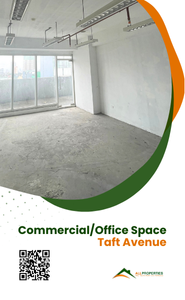Things Nobody Teaches You About Buying a Home

Owning property may seem simple, but there are many things you need to know, consider, and research before acquiring, transferring, and maintaining one.
Things To Think About Before Buying a Home
When purchasing a home, there are five major factors to consider. These are the property’s location, the developer’s reputation, your budget, or how much you are willing to pay on your down payment and monthly payment /mortgage payment, the length of time you want to pay it, the type of financing you should pick, and the property title.
Location
One of the most difficult aspects to consider when purchasing a home is its location. A good location is close to the office and offers easy access to the hospital, schools, markets, shopping malls, and police stations. This type of place is known as a region on the rise, or it is located near commercial centers, business districts, and tourist attractions.
The price of houses in growing areas may be costly, but it can save money on transportation in the long term. It is also handy to reside in such areas because it is close to your everyday necessities Properties in growing areas gain in value quicker than properties outside of business districts and commercial hubs.
Developer’s Reputation
Another factor to consider is the developer’s or house builder’s repute. A lot of fraudulent activity occurs in the real estate sector nowadays. Transacting with a trustworthy developer reduces the likelihood of encountering scams, schemes, and fraud. A reliable property developer keeps their reputation, performs on schedule, and delivers on their promises. They guarantee the quality of the house, its surroundings, and the community they develop, down to the materials used and the design aesthetics. They also give homeowners a pleasant and luxurious lifestyle by constructing facilities like 24/7 security, clubhouses, internal access roads, fitness centers, and playgrounds.
Vista Land and Lifescapes Inc., also known as Vista Land, is a prominent developer in the Philippines. Vista Land is the Philippines’ largest homebuilder, offering a diverse range of housing goods to meet the needs of every Filipino, including opulent houses, mid-income housing segments, economical low-cost housing, and vertical dwellings. Vista Land is widely renowned in the Philippines for its real estate brands such as Brittany, Crown Asia, Camella, Lessandra, and Vista Residences.
Budget
When looking for a house and lot for sale, the budget is quite important. It determines the sort of house and land you can afford and pay for. When reviewing your budget, keep the following points in mind:
- Reservation and down payment for the house and lot
- Monthly payments for mortgage
- Real estate property taxes
- Homeowner’s association fees for a new homeowner
- Property insurance
What Financing Options Are Available?
In the Philippines, there are four types of home loans based on the financing scheme: Pag-IBIG, Bank Financing, Inhouse or Owner Financing, and SSS Housing Loan.
PAG-IBIG HOUSING LOAN
The PagIBIG home loan is provided by the government agency Home Development Mutual Fund (HDMF), also known as the Pag-IBIG Fund. Pag-IBIG members who are salaried, self-employed, or OFWs aged 65 and under can apply for a house loan.
READ ALSO: The Complete Guide for Pag-IBIG Housing Loan
BANK FINANCING
Housing loans are available from the majority of Philippine banks. The amount that can be borrowed, the conditions, and the interest rate may vary from one bank to the next. That is why it is necessary to conduct preliminary research before applying for a house loan through bank financing.
IN-HOUSE FINANCING
Borrowers can obtain a direct home loan from the real estate developers through in-house finance or owner financing. In-house financing, unlike Pag-IBIG home loans and bank financing, has a shorter period and often takes five to ten years.
SSS HOUSING LOAN
Another government body that provides house loans is the Social Security Administration, known as SSS. SSS home loans are available to all WOM, Workers’ Organization Members, or private sector workers registered with DOLE, the Securities and Exchange Commission, or the Cooperative Development Authority. To be eligible for a home loan, the borrower must be under 60 years old at the time of application, have at least 36 months of premium contributions, or have made 24 contributions before to the loan application.
Based on the following parameters, the loan amount provided by the SSS housing loan is the lowest amount:
1. An appraised value of at least 70%, but not more than 90%, of the collateral.
2. The borrower’s ability to pay.
3. The borrower’s actual need as determined by the SSS based on the contract to sell/scope of work and bill of materials.
The highest loanable amount is P2,000,000.00, with interest rates as follows:
- Amounts up to P450,000.00 – 8% p.a.
- Over P450,000.00 to P1,000,000.00 – 9% p.a.
- Over P1,000,000.00 to P1,500,000.00 – 10% p.a.
- Over P1,500,000.00 to P2,000,000.00 – 11% p.a.
The SSS home loan period, like bank financing and Pag-IBIG, ranges from five to thirty years.
Property Title
Another factor to examine when purchasing a house and lot is the legitimacy of the Property Title.
It is essential to verify the following to ensure that the title is clean:
1. The standard of the paper used
Property title forms are produced by the Banko Sentral ng Pilipinas and feature the texture of a bank check. All you have to do to see if the title is genuine is hold it up to the light. The title is valid if the Land Registration Association watermark can be seen through the paper.
2. Confirm the real estate agent or seller’s identification.
With the rise of fraud in the real estate market, it is critical to investigate the real estate agents’ or sellers’ past. You may do so by contacting the developer and asking if the agent is still with them
If the seller and the residence are not connected to a developer, you must determine whether the seller owns the property. If the seller’s father holds the property title, you must ensure that all of his family members agree to sell the property.
3. Examine the title’s description of the real estate
When surveyed, the land description stated in the property title should reflect the actual land extent.
4. Confirm the status of real estate taxes
To see if the property tax has been adjusted, go to the Assessor’s Office in the municipality where the property is located. If it has not been changed, the seller must amend the payment and sign a signed agreement to do so.
Transfer of Property In Your Name
After you’ve purchased a house and lot or a lot for sale, the next step is to transfer the land title into your name or the name of the group of individuals who own the property.

It normally takes at least three to four months to transfer the land title from the owner to the buyer. Given that you must visit many organizations, including the BIR, Registry of Deeds, Treasurer’s Office, and Assessor’s Office, in order to transfer the land title document into your name. Going from one agency to another on your own takes time and demands a lot of patience.
There are six steps to transferring property into your name:
1. Provide and submit the documents needed by the Bureau of Internal Revenue’s (BIR) Revenue District Office (RDO) that has jurisdiction or where the property is located.
2. Get an assessment and pay for the Capital Gains Tax or Value-Added Tax and Documentary Stamp Tax on your BIR RDO’s Authorized Agent Bank or ABB.
3. Submit the documents on steps 1 and 2 to your respected BIR RDO to get the Certificate Authorizing Registration or CAR.
After the submission of documents, you will be given an estimated period unto when you will pick up the two copies of Certificate Authorizing Registration, (a blue copy which will be used for the transferring process and a brown copy for your keep safe), original deed of conveyance stamped as Received by BIR and signed by an RDO Officer, and some supporting documents. Usually, it would take at least two to three weeks before you can get the CAR.
4. Submit the Deed of Conveyance, Tax Clearance, Certificate of No Improvement for lots, BIR Certificate Authorizing Registration, and Special Power of Attorney (given that someone else will process the transfer) to the Treasurer’s Office of the Local Government Unit where the property is located.
The Treasurer’s Office will then compute for the Transfer Tax that you can pay either through cash or Manager’s check. You will then be given an Official Receipt for the payment of Transfer Tax, Treasure’s Office rubber-stamped mark at the back of the Deed of Conveyance, and/or a Tax Certificate.
5. Submit documents to the Registry of Deeds for the computation of registration fees. After payment, it would usually take at least two to three weeks to present the new title.
6. The last step is to submit documents to the Assessor’s Office of the municipality or city where the property is located. The Assessor’s Office will then issue a new tax declaration wherein the new owner needs to pay the assessment fee.
THE COST OF TITLE TRANSFER
Transferring the land title from the seller to the buyer entails expenses that both parties must pay. The following are the most frequent expenditures incurred by both sellers and buyers when transferring a land title:
SELLER pays for the:
- Unpaid real estate taxes.
- Capital Gains Tax equivalent to 6% of the selling price on the Deed of Sale or the zonal value, whichever is higher.
BUYER pays for the:
- Registration Fee – 0.25% of the selling price, or zonal value or fair market value, whichever is higher.
- Transfer Tax – 0.5% (in the provinces) or 0.75% (in Metro Manila) of the selling price, or zonal value or fair market value, whichever is higher.
- Documentary Stamp Tax – 1.5% of the selling price or zonal value or fair market value, whichever is higher.
- Incidental and miscellaneous expenses during the registration process.
REAL ESTATE PROPERTY TAXES
Real property tax is a type of tax charged by local governments on properties that must be paid by those who own or whose names appear on titles and certificates of ownership.

The actual tax rates vary depending on where the property is located in the Philippines. The Metro Manila, Philippines real property tax rate is 2% of the assessed value of the property, whereas the province rate is 1%.
The formula to compute real estate tax is REAL ESTATE TAX = REAL ESTATE RATE X ASSESSED VALUE OF THE PROPERTY. The assessed value of the property is defined by its fair market value multiplied by the assessment level fixed through ordinances.
The assessed value may be defined as the property’s taxable value. To get the taxable value of a property, you need to multiply the market value by the assessment level. After getting the total assessed value of the property, multiply the applicable real estate tax rate (Metro Manila or provincial) to get the amount that needs to be paid.
Now that you have the Real Property Tax, you need to add the Special Education Fund tax. Special Education Fund is an additional one percent levied on the assessed value of the real property. The proceeds of this fund will go to the budget of local schools.
Aside from the Special Education Fund levy, this can also be imposed under real estate taxation:
- Ad volarem tax on idle lands- five percent of the assessed value of real property tax.
- Special assessment to recover 60% of a public improvement that benefits the property
WHERE AND WHEN DO YOU PAY ESTATE TAX?
Real estate taxes can be paid in whole or in quarterly payments at the city or municipal treasurer’s office.
Those who choose to pay in full must do so by January 31st of each year, while those who wish to pay quarterly must do so by the following dates:
- First Quarter: On or before March 31
- Second Quarter: On or before June 30
- Third Quarter: On or before September 30
- Fourth Quarter: On or before December 31
Valid identification, a copy of the most recent tax declaration, and copies of the official receipt are required to complete the payment of the real estate tax. Bring a copy of the previous year’s tax declaration and official receipts from either the developer or the former owner of the property if you are a first-time payor. During the property handover, the old owner normally hands over certain documents to the new owner.
With the advancement of technology, it is now feasible to pay real estate taxes online using virtual platforms that allow these types of transactions.
Here’s the list of online portals in Metro Manila where you can settle your property’s real estate tax:
- Caloocan: Caloocan City Web Portal
- Makati: Makati Online Payments
- Mandaluyong: Mandaluyong City Online Services
- Manila: Go Manila
- Muntinlupa: Muntinlupa Online Real Property Payment System
- Pasig: Pasig City’s Online Services
- Quezon City: QC E-Services
- San Juan: Makabagong San Juan
- Valenzuela: Valenzuela City Online Services
Local Government Units normally provide early taxpayers savings of up to 20% of the yearly tax owed. Discount rates may also differ based on where the property is situated in the municipality or city.
Late payments of the real estate tax are subject to penalties. The penalty is 2% interest per month on the unpaid sum, with a maximum penalty of 72 percent in three years. If the real property tax is not paid, the local government unit in question may impose administrative action, such as a levy on real property, or judicial action.
Find your perfect home through a trusted real estate website like AllProperties! We have hundreds of property listings of house and lot for sale that will suit your needs. Browse now!




